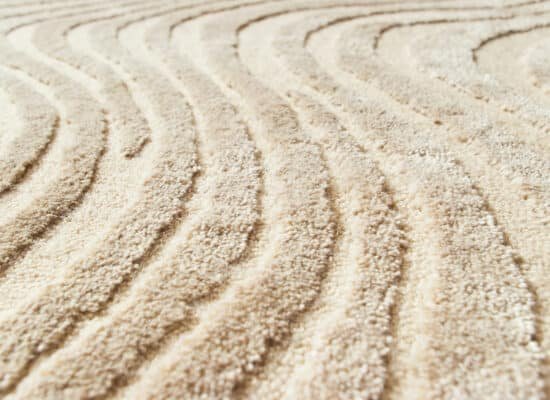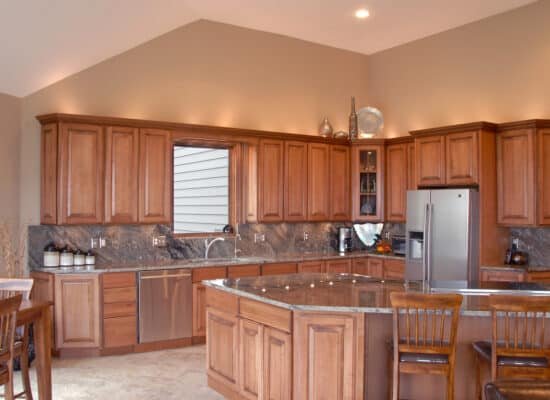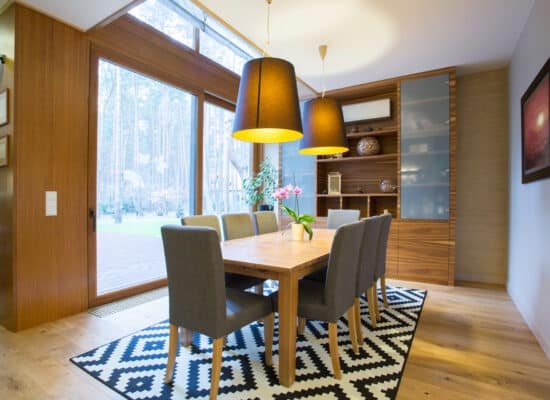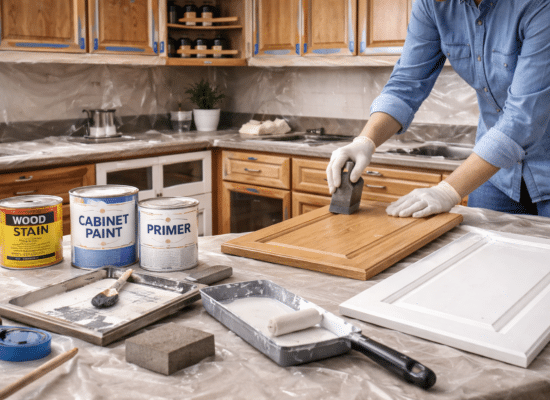Are you considering having bamboo flooring in your house this new year? Whether you are furnishing one portion of the room or the entire house, you should go for the environmentally friendly option.
Table Of Content
- The Ultimate Guide to Bamboo Flooring: Pros and Cons of Bamboo Flooring, and Everything In Between
- What is solid bamboo flooring?
- Types of bamboo flooring
- Horizontal bamboo
- Vertical bamboo
- Strand woven bamboo
- Engineered bamboo flooring
- What are the pros of bamboo flooring?
- Is solid bamboo flooring still popular?
- What are the problems with bamboo flooring?
- Bamboo flooring cost
- Do bamboo floors scratch easily?
- Types of scratches
- Major causes of scratch
- Is solid bamboo flooring toxic?
- Do dogs scratch bamboo floors?
- Final verdict
Understanding the pros and cons of bamboo flooring, specifically the pros and cons of bamboo flooring, is crucial when making your flooring choice.
It has become overwhelming to choose the best bamboo flooring for your house. Picking comfortable and long-lasting bamboo flooring has become an enormous problem. Right? You must be looking for a guide that can narrow down the most suitable options for you in such a situation.
The Ultimate Guide to Bamboo Flooring: Pros and Cons of Bamboo Flooring, and Everything In Between
Well, this blog post will take you to the decision-making process. It talks about the pros and cons, price, toxicity, and downsides of the best bamboo flooring.
This blog post discusses the pros and cons of bamboo flooring, highlighting the pros and cons of bamboo flooring in detail.
In this post, we’ll explore the pros and cons of bamboo flooring to help you weigh your options.
We will analyze the pros and cons of bamboo flooring to provide you with a complete understanding of the pros and cons of bamboo flooring.
In this blog post, we will explore the pros and cons of bamboo flooring to help you make an informed decision.
The pros and cons of bamboo flooring are essential factors in deciding if it’s the right fit for your home.
When considering the pros and cons of bamboo flooring, it is essential to know all the pros and cons of bamboo flooring to make the right choice.
For the last few years, bamboo flooring has gained significant attention. Although it’s commonly known as hardwood flooring, bamboo refers to a grass that’s significantly processed to create home improvement products and floorings. It has got a splash because of its top features such as affordability, versatility, easy maintenance, and environmentally friendly properties.
Don’t stress out! Just read this blog post and make the bamboo floor buying process fun and easy.
Let’s get started!
What is solid bamboo flooring?
Bamboo flooring has become an excellent substitute for conventional hardwood flooring due to its resemblance to hardwood, but it is more sustainable. Most people confuse bamboo with wood, but in reality, it’s a grass indigenous to China that is sliced into strands or stripes. These strands are then dried and pressed into flooring planks.
Bamboo flooring is readily available in different colors, styles, and finishes. This stable flooring material can be easily installed in different areas having varying temperatures and humidity.
Types of bamboo flooring
Knowing the types can also help you understand the pros and cons of bamboo flooring better.
There are four major types of bamboo flooring
- Horizontal bamboo
- Vertical bamboo
- Strand woven bamboo
- Engineered bamboo
Horizontal bamboo
Strands of bamboo are joined together horizontally to create flooring planks. The bamboo grain is more apparent as it’s visible broadly on the floor surface.
Vertical bamboo
Strands of bamboo are joined together vertically to create flooring planks. The bamboo grain is less evident and less clear on the floor surface.
Strand woven bamboo
Strips of bamboo are fabricated and pressed under high temperature and pressure to form flooring planks. The bamboo grain is not organized. Strand woven bamboo is more rigid than wood flooring.
Engineered bamboo flooring
It is a solid bamboo flooring where bamboo affixes with a pine base. It comprises different layers of bamboo flooring (either horizontal or vertical) attached to create numerous looks and textures. But if different layers are used, the changes in moisture conditions may cause the problem.
It’s crucial to test accurate moisture before installing bamboo because it holds a low expansion rate. However, at this stage, no standardized grading criteria have been devised for bamboo products and floorings. So be aware during its manufacturing.
What are the pros of bamboo flooring?
The advantages of the best bamboo flooring are as follows;
Understanding the pros and cons of bamboo flooring can save you time and money in the long run.
The pros and cons of bamboo flooring can significantly impact your decision-making process.
- Hard and Durable
One of the best qualities of bamboo flooring are that it’s harder and denser than hardwoods. Also, it is durable, tough, stable, long-lasting (up to 50years) with special care and maintenance. Termite resistance is another top feature of bamboo flooring. Under rough and tough conditions, it can easily last for about 25 years.
- Visually appealing
For those looking for the clean, trendy and aesthetic look of their homes or offices, bamboo flooring is the right choice. The stylish and modern look of this flooring looks elegant, unique, and appeals visually. The variety of the styles and colors gives it an undeniable look.
- Easy maintenance
Relatively low maintenance is required for the bamboo flooring. It can easily be cleaned with a mop and mild soap. The easy to maintain property makes it a pro for busy homeowners.
- Easily refinished
Over time bamboo floors become dented, scratched, and discolored, but it’s easy to refinish it. Mostly, the installation of bamboo flooring comprises layers of coats for protection. But if important, polish the surface and then recoating will help you achieve entirely new bamboo flooring.
This is a significant consideration among the pros and cons of bamboo flooring.
When evaluating the pros and cons of bamboo flooring, consider how these advantages can benefit you.
- Water-resistant
Unlike traditional hardwood flooring, bamboo flooring is resistant to stains, water damage, and warping. However, slight damage may occur.
- Cost-effective
Despite the unique and appealing look, the bamboo flooring is cost-effective than other traditional hardwood floorings. It is readily available at cheaper rates. For instance, the expected price is from $5 to $8 per sq. foot.
- Sustainable
Another top feature of bamboo flooring is its sustainability and environmentally friendly status. The growth of bamboo plants is so rapid that it reaches maturity in only 5 to 6 years. It is farmed sustainably and reduces pressure on the traditional wood species.
The sustainability of bamboo flooring is one of the prominent pros and cons of bamboo flooring that many homeowners appreciate.
Sustainability is one of the leading pros and cons of bamboo flooring that should not be overlooked.
Is solid bamboo flooring still popular?
Might you have heard much conflicting info about the installation of bamboo at commercial or home? Quick research on Google will provide you tons of claims that might leave you in confusion. As a matter of fact, during the past few years, bamboo flooring has evolved a lot, and today it has achieved a significant place.
Bamboo flooring shows huge similarities with hardwood flooring, and this is the main reason for its popularity. The exotic, chic look of bamboo flooring at cheaper rates makes it an appealing flooring choice for many.
What are the problems with bamboo flooring?
When considering the pros and cons of bamboo flooring, it’s vital to be aware of the potential drawbacks.
The discussion on the pros and cons of bamboo flooring extends to the environmental impact as well.
Bamboo comprises various attractive qualities that it can easily adjust to different environments. However, some inherent vulnerabilities impart challenges under particular circumstances. Some of the common problems are bamboo flooring are as follows;
- Require deep cleaning
Since weekly wet mopping on the bamboo floor isn’t enough, regular, diligent cleaning is essentially required. Vacuuming and sweeping daily will help to clear dirt particles that lead to scratches. After that, the floor can be damp mopped to wipe up excess liquid.
- Prone to scratches
The hard and dense nature of bamboo makes it susceptible to dents, scratches, and cracks. Over time, dragging furniture and unpadded high heels can leave a permanent mark on the floor. Even a small amount of debris can stay there for a long time and result in a broken or dull surface.
- Color changes with time
Over time the timber floors get dark, while the color of the bamboo floor fades due to the prolonged sun exposure. If the furniture is not moved frequently, certain areas fade and show contrast. To avoid this problem, move furniture frequently, so all the areas fade evenly.
Don’t pay special heed to the maintenance of the bamboo floors. To maintain the natural warmth, never use the chemical cleaners directly onto the floor. Such chemicals can lighten the gloss of the coating. Draw the shades, especially in summers, to maintain the outlook of the floor for longer.
- Susceptible to VOCs
The physical appearance of bamboo may relate to the wood, but in reality, it’s a grass that is molded into a variety of shapes and sized under high temperature, pressure, and glues. Some low-quality adhesives may contain a significant amount of formaldehyde, which may cause toxicity and produce volatile organic chemicals. You can deal with this problem by buying from reputable dealers.
- Environmental problem
Some manufactures use cheap, toxic adhesives on improperly dried soft bamboo. They also don’t follow special safety protocols during the manufacturing process. Such high emission adhesives cause harm to the environment and human health.
Understanding all aspects, including the pros and cons of bamboo flooring, will guide you in your purchase.
- Rapid carbonization
The excess heat initiates the carbonization process, which darkens the outlook of bamboo and affects its aesthetic appeal. This demands a variety of hues and shades of bamboo that matches the specific room. That carbonization process makes it look similar to the traditional hardwood floorings. The downside of the approach is that it makes the material softer and susceptible to abrasion, staining, and impact.
The pros and cons of bamboo flooring are evident, but understanding them fully is key to making the right choice.
After considering the pros and cons of bamboo flooring, you should feel confident in your choice.
- Responsive to humidity
Even if there is no issue of water splashes, humidity is yet a significant concern for bamboo flooring. These problems are more common in basements, kitchens, and bathrooms and the moisture in the air is more harmful to bamboo than puddled water. Moving down through the crevices and cracks, even a little moisture can result in long-lasting damage, which may sometimes cause microbial growth.
Bamboo flooring cost
Finally, weighing the pros and cons of bamboo flooring will lead you to an informed purchasing decision.
The average cost of bamboo flooring is from $5 – $15 per sq. foot, plus labor and material. According to this figure, you will have to spend $1250 – $2500 for a 250 sq. foot room. However, the average cost of the solid bamboo flooring of the entire 2500 sq. foot house would be $7000 – $20,000.
The price indicates that bamboo flooring is more cost-effective than wood flooring. You can easily get engineered oak flooring at cheap rates; however, strands of woven bamboo might be expensive due to their durability.
Do bamboo floors scratch easily?
No flooring material is entirely scratch-proof. Naturally, sharp things can create a dent or scratch almost everything.
Types of scratches
Bamboo flooring is prone are two types of scratches
- Micro surface scratches
These white scratches appear when a sharp edge moves across the surface. It may occur due to rocks or grit lying under the furniture legs, vacuum cleaner, or sharp toys. Such scratches are almost invisible on dim-colored floors, but you can see them clearly on dark-colored floors.
The polyurethane finish of the bamboo floor is usually temporary. These scratches mask with time because of the friction produced by walking.
- Permanent dents
The woven bamboo floorings are related to toughness and hardness. Their density and hardness require them to apply force to create dents permanently. These dents don’t occur due to the pet claws and high heels.
This is the reason most families with pets and children prefer strand bamboo flooring. Additionally, heavy furniture can be placed on it without any reservation. On the contrary, the permanent dents can develop quickly on traditional hardwood floors.
Major causes of scratch
You may blame the flooring type for the scratches but knowing the scratch causes are also important. There are numerous causes of scratches, but the most common are
- High heels, spikey shoes, and stilettos
- Dirt or debris in the house
- Loose sand
- Heavy furniture
- Claws of dogs and cats
- Toys with sharp edges
Is solid bamboo flooring toxic?
Are you done with your research on bamboo flooring? Yes? Then you might be aware of the formaldehyde level in the high-quality bamboo floors. Normally, the level is less than 0.02ppm. What about moderate or low-quality bamboo floor brands? Do they have a high level of formaldehyde? Of course, yes!
It’s not hidden that long-term exposure to formaldehyde and VOCs may damage human health. This is particularly true for individuals with low immunity and respiratory issues. That’s the reason you shouldn’t smoke while painting.
The researchers suggest that outdoor air is usually much cleaner than indoor air because the pollutants such as mold, formaldehyde, and VOCs from furnishings bound indoor cause harm to human health. The emission of formaldehyde VOCs can lead to serious health problems such as
- Eye and skin irritation
- Anxiety, depression, and Mood swings
- Attention deficit syndrome
- Impaired memory
- Sleeplessness
- Frequent asthma attacks
- Mental problems
- Nose and throat cancer
So it is evident to promote the use of high-quality bamboo flooring for your houses and commercial places. Moreover, the right diet and regular exercise may boost your immunity and make you less prone to such health issues.
Do dogs scratch bamboo floors?
Unlike hardwood flooring, bamboo flooring doesn’t scratch easily. Besides Tyrannosaurus, all dogs’ nails don’t leave permanent marks or dent in woven bamboo. So, Bamboo flooring is the best choice for dog owners because it is scratch-resistant and highly durable. Moreover, bamboo adds an aesthetic appeal to your home, and its maintenance is super easy.
The pros and cons of bamboo flooring highlight its advantages, making it a favorable choice for many.
Final verdict
Bamboo flooring has highly numerous pros and cons. That said, the benefits of this flooring outweigh the drawbacks. This is an exotically unique flooring material easily found in different lengths, stains, and patterns.
Understanding the pros and cons of bamboo flooring is essential for making the best flooring choice regarding the pros and cons of bamboo flooring.
Whatever you want, we recommend you seek the advice of a flooring dealer about the type of bamboo flooring you want. They are the ones who are fully equipped with the knowledge, and they can assist you with cost and complete the project efficiently.
Consulting with an expert can clarify the pros and cons of bamboo flooring, ensuring you make an informed decision.
For more insights on the pros and cons of bamboo flooring, follow us for updates.










![Shiplap Costs Per Square Foot: Proven Expert [2026 Pricing Guide] Shiplap Costs](https://mynexthouseproject.com/wp-content/uploads/2026/01/Shiplap-Costs-550x400.jpg)


